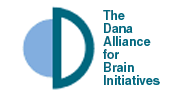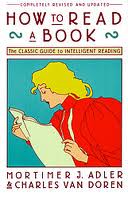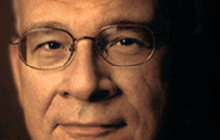Reading is not the only academic action. A growing mind wants to order and map out what it is learning. Nothing does this better for the mind than writing things down. This can take many forms, some very formal and others less so. But the act of writing things down, of having to organize your thoughts enough to put them into writing, builds a stronger mind. While this is not a course in composition, let’s look at this tool briefly.
Marking a book
Just like a toolbox will have several wrench sizes, so there are several types of writing that fit differing needs. We will start with the simplest. Marking up a book while reading it often results in building a clearer understanding of that book. Take a few minutes and read this simple and helpful article on “How to Mark a Book.”
Notes and Outlines
The next size up in the “writing toolkit” would involve ordering your thoughts as you read, jotting down ideas and the main points from the author, and even outlining the book’s structure. This is something most students do already when listening to a teacher in class. If you think of a book in a similar way, it might help you become a better note taker or outliner of what you read. One individual who has helped many students become better with this tool is Adam Khoo. Watch the following video and seek to incorporate his tips.
Note taking helps record your thoughts for future reference. It can also help you organize your thoughts into some type of order. And of course, notes can easily become the basis for sharing your thoughts with others. That naturally leads us to the next form of writing that builds a better brain.
Journal/Blog
Journaling is a very old mental activity. It is usually about the heart and what the author is currently thinking and feeling. Most journals are very private, and the practice is mostly personal, but putting down what you are thinking now and coming back to it years later can help develop your thoughts. Many keep a book that is less like a diary and more like a book of thoughts and quotes. They write down quotes from others, quotes from books they read, and other observations they make throughout a given day. They then have it to review when they have time. Even if you are the only one to ever read it, the act of writing down your thoughts can help you make those mental doodles concrete and clear.
Today, many are choosing to journal online using the blog. Blogging has taken over the world, or at least it can seem like that. More people than ever are putting their thoughts online for anyone to read. This can be a wonderful way to collect all your thoughts on a given subject, such as having a blog where you write reviews of movies you liked or did not like. The act of writing in this open way makes the author consider the validity of his thoughts: How do I know this and would this make sense if someone else read it? For this reason blogging takes your thinking power up yet another notch, because you are now exposing your thoughts to the world wide web. The fact that most blogs today are free, easy to use, and allow you to determine who has access all combine to make this a great alternative to the older “blank book.” Not all blogs are great reading, but this seems to be a generally sound principle: you think more when writing something others are going to read.
Essays
This final form of writing is one far too many people just associate with formal schooling and thus never attempt unless it is assigned. But history teaches us that clear-thinking people regularly take up the task of fully drafting out their thoughts on a given subject. The “doctor” of the personal essay might very well have been Michel de Montaigne. This French essayist wrote hundreds of essays on a dazzling array of subjects. Take five minutes to listen to this recording of one of his essays, “Of Sleep,” and perhaps it will motivate you to try your hand at one as well.
If you enjoyed that essay, consider reading essays by such authors as GK Chesterton, Benjamin Franklin, Ambrose Bierce, or Oscar Wilde as well.
The essay is the tool in your kit that allows you to most fully develop all that you know about a given subject. It is the culmination of many hours of thoughtful consideration on your part. Now we move to another way of developing your mind: Thinking and meditating.










